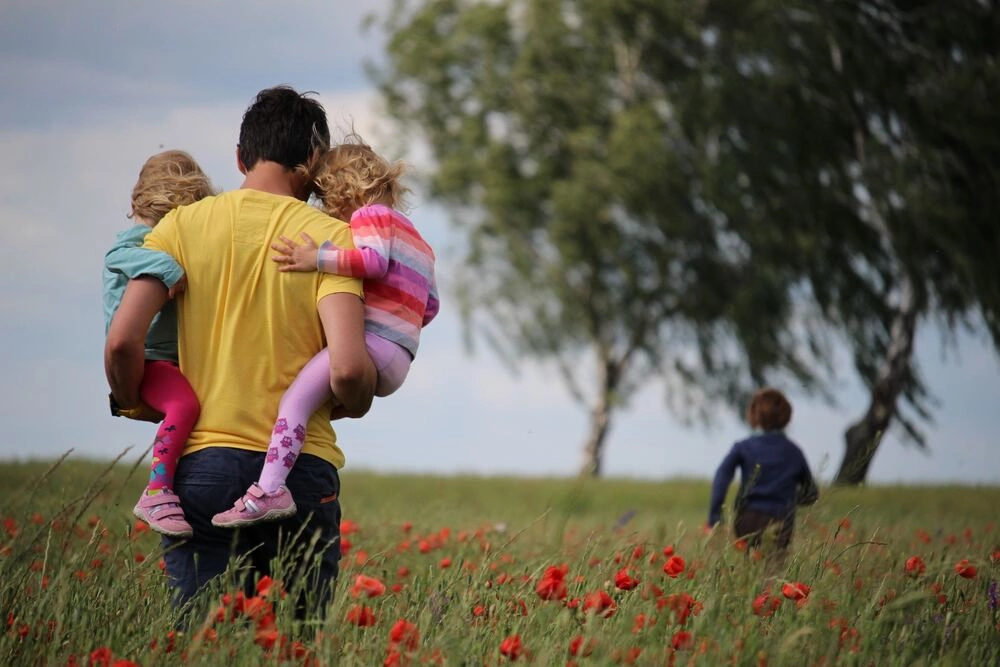Dysfunctional families may sound complex, but in simple terms, they’re families that don’t work as smoothly as they should. Although they might seem functional on the surface, there are underlying issues that affect the family members’ well-being. The causes of dysfunction can vary – it’s not just about alcoholism or drug addiction, but also other challenges like serious illnesses, deaths, or mental health problems [1]
Causes of Dysfunction: Dysfunction can arise from anything that disrupts or stresses a family. It’s crucial to approach the healing process without blame, as dysfunction can pass down through generations. Shame and stigma can prevent addressing the historical behaviours and patterns that contribute to isolation and secrecy.
As John Bradshaw explained in his book “The Family,” most discussions about family systems are aimed at professionals, but the average person also needs to grasp these concepts. Understanding how we lose our true selves within the family dynamic and how it influences broader societal issues is key [source: John Bradshaw’s website].
Many families hesitate to acknowledge that they fall into the dysfunctional category, which can lead to a delay in seeking help. This pattern, if not interrupted, can persist from one generation to the next, causing harm to children and contributing to mental illness and dysfunctional communities.
Family roles in addiction often play a complex part in the cycle of addiction, affecting not only the person with substance use disorder but also the entire family unit. Addressing these roles can be a significant step towards recovery.
Ref.
[1] https://www.ncbi.nlm.nih.gov/pmc/articles/PMC6479670/
What are Family Roles in Addiction?
In families grappling with addiction, each member often finds themselves adopting a specific role, either consciously or subconsciously, to manage the turmoil caused by the addiction within the household. This notion of well-defined family roles in the context of addiction was notably developed by family therapist Sharon Wegscheider-Cruse [2][3]. She outlined six primary roles commonly assumed in families confronting addiction. These roles function as coping mechanisms, and they can either exacerbate or alleviate the ongoing cycle of addiction.
Ref.
[2]https://openlibrary.org/books/OL3786699M/Another_chance
[3]https://www.simonandschuster.com/authors/Sharon-Wegscheider-Cruse/162979584

Wegscheider-Cruse’s seminal work acts as a foundational guide for understanding the complex ways in which addiction disrupts family dynamics. Her framework not only provides invaluable perspectives for healthcare providers in tailoring effective treatment strategies but also empowers families with the knowledge they need for recovery.
By grasping these roles through the lens of Wegscheider-Cruse’s model, families can gain a more profound understanding of their own dysfunctional dynamics. This understanding, in turn, paves the way for each family member to identify how they contribute to both the problem and its potential solution. This collective awareness fosters group healing and paves the way for more targeted intervention techniques.
Why is addiction considered a family disease?
Addiction is often considered a family disease because it impacts everyone in the family, not just the person struggling with substance misuse. When one family member is addicted, the rest of the family often adopts roles that either enable or counteract the addiction. So, what does acknowledging this provide? Firstly, it removes the focus solely from the person with the addiction, and it spreads the responsibility for recovery across the family. And going deeper, it may help to remove some of the stigma and blame often associated with addiction, promoting a more collective and less isolating path towards recovery.
The Six Types of Family Roles in Addictive Households
Let’s delve into these six types of family roles commonly found in families dealing with addiction. Understanding these roles can be a crucial first step for everyone in the family as they navigate the difficult terrain of addiction impacts and seek addiction recovery.
The Addict
The person with a substance use disorder is typically at the centre of the family dynamic, and their actions reverberate throughout the family unit. They often become the primary focus of attention, which can overshadow the needs and well-being of others in the family. Coping strategies of this individual may include denial, minimising their substance use disorder, or blaming others for their problems. Their behaviour can dominate the emotional climate of the household, dictating the mood and activities of family members.
The Enabler (Caretaker)
The Enabler, often a spouse or a parent, takes on a caretaker role, sometimes at great personal expense. They may make excuses for the person with the substance use disorder, inadvertently maintaining the cycle of addiction within the family. The enabler’s actions, whether consciously or not, serve to shield the individual from experiencing the full consequences of their addiction. The Enabler’s coping mechanism is often rooted in a misguided sense of love or duty, but it ultimately hinders the person’s recovery journey.
The Family Hero
The Hero is usually a family member who strives to excel and appear as if everything is perfectly fine. They might excel academically or professionally, in an effort to divert attention away from the family’s dysfunctional dynamics. However, this behaviour can create an immense emotional burden for them. The Hero aims to bring esteem to the family, yet often neglects their own needs and emotional well-being in the process.
The Scapegoat
The Scapegoat is the family member who often acts out or displays anti-social behaviours, drawing attention away from the person with the substance use disorder. By focusing on the Scapegoat’s actions, the family can avoid confronting the actual issue of addiction. Though they might seem rebellious or independent, the Scapegoat is also a victim of the family dysfunction, struggling emotionally, sometimes even exhibiting signs of substance misuse themselves.
The Mascot (Clown)
The Mascot tries to diffuse the tension and conflict within the family by using humour or engaging in antics. While their actions might provide temporary relief, they often trivialise the severity of the situation. The Mascot may develop their own coping mechanisms, such as engaging in solitary activities, to deal with the emotional stress they experience within the family setting.
The Lost Child
Known as the Lost Child, this family member often appears introverted and engages in solitary activities to escape the chaos. They generally avoid drawing attention to themselves and may struggle with forming intimate relationships outside of the family. Though they might seem as if they’re coping well because they’re not causing any ‘trouble,’ their emotional needs often go unaddressed, and they may suffer from feelings of neglect or isolation.
The Emotional Toll of Dysfunctional Family Roles
In families dealing with addiction, the emotional toll can be extensive, not only for the person with the substance use disorder but also for everyone in the family. Family members often adopt dysfunctional roles as a coping strategy, which may alleviate short-term stress but contributes to long-term emotional strain. Understanding the emotional toll can bring about a crucial turning point.
Overcoming Dysfunctional Family Roles in Addiction
The journey to overcoming dysfunctional family roles in addiction is both challenging and rewarding. It’s not only vital for the person with the substance use disorder but also for the family unit as a whole. Adopting new, healthier roles can disrupt the cycle of addiction and pave the way for healing and change. Actionable methods like family therapy, individual counselling, and support groups have proven effective in improving the family dynamic. These interventions can help the family restructure their emotional bonds and guide them towards a path of recovery, unity, and well-being.
The Effects on Children
Growing up in a dysfunctional family can have long-lasting effects on children, following them into adulthood. Children have no control over the negative environment created by their parents or guardians, who might not even realise the emotional harm they cause. Dysfunctional families often lead to trauma, mental health challenges, and even substance misuse.

How to Break the Cycle
To effectively break the cycle of addiction and dysfunctional family roles, a multifaceted approach is often the most effective. Setting healthy boundaries, learning communication skills, and leveraging professional help can equip family members with the tools they need for lasting change. Various resources like family counselling and community support groups can be particularly beneficial. These resources provide not only the know-how but also the emotional support crucial for such a significant change. Taking these steps offers the family a blueprint for eradicating the dysfunctional roles and behaviours that sustain the cycle of addiction.
The Importance of Family Support in Recovery
Family support is invaluable during the process of recovery from addiction. While professional intervention and individual commitment are essential, the backing of family members provides an emotional safety net that’s irreplaceable. The familial unit can offer emotional sustenance, logistical support, and can also actively participate in therapy sessions, all of which can be key factors in the successful recovery journey. In the broader picture, a supportive family environment can drastically improve the quality of life for everyone in the family, not just the person struggling with substance misuse.
How does recovery look like for a family member with addiction?
Recovery for a family member with addiction is a lifelong process that typically involves multiple stages—from detox to therapy and ongoing support. Family involvement in this process is crucial and can significantly impact the family member’s recovery.
How Can I Help My Loved One’s Recovery?
Helping a loved one’s recovery from addiction is a sensitive yet crucial responsibility. The first step often involves open communication, wherein you express concern without judgement. Next, educating yourself about addiction can help you understand what your loved one is going through, enabling you to provide more targeted support. Offering to assist in finding professional help, such as therapists or support groups, is another concrete way to help. Above all, taking care of yourself is vital; you can’t pour from an empty cup. Your well-being is equally essential for the recovery journey of your loved one.
How can I help a family member who is struggling with addiction?
Helping a family member who is struggling with addiction starts with supporting their decision to seek treatment and recovery. Encourage them to enter a rehab program, provide emotional support, educate yourself about addiction, set boundaries, and consider attending family therapy sessions together.
Can addiction in the family be overcome and keep the family together?
Yes, addiction in the family can be overcome, and with the right support and treatment, the family can stay together and heal. It requires a commitment to recovery, open communication, addressing underlying issues, and working together as a unit to create a healthier and more functional family dynamic.
Can family involvement also be a form of codependency?
Yes, family involvement can sometimes transform into a form of codependency. This occurs when the family’s desire to help becomes an enabling factor in the continuation of addiction. It’s a delicate line to walk; involvement and support can easily turn into an unhealthy attachment where the family member may unknowingly start to make excuses or cover up for the individual with a substance use disorder. It’s essential to be self-aware and possibly seek professional guidance to ensure that involvement is healthy and constructive.
Can the youngest child also take on the role of ‘The Lost Child’?
Yes, the youngest child can often assume the role of “The Lost Child,” spending time on solitary activities to escape the household’s issues. This child acts as an invisible member, often neglected as the family operates around the life of active addiction.
What role does drug or alcohol misuse play in family dynamics?
Drug or alcohol misuse often serves as the catalyst for dysfunctional family dynamics. Such substance abuse destabilises the family structure, leading to roles like “The Hero” or “The Scapegoat” emerging as coping mechanisms. Moreover, family members may develop patterns of codependency, making recovery even more complex.

Find help at Crossroads Antigua
Taking the first step towards recovery is monumental and often the most challenging. At Crossroads Antigua, we offer a comprehensive range of services to assist individuals and their families on this transformative journey. Our admissions team is available 24/7 to provide all the necessary information and guidance you may need. From individual therapy to family counselling, we tailor our approach to meet the unique needs of each family, laying the groundwork for a successful, long-term recovery.

